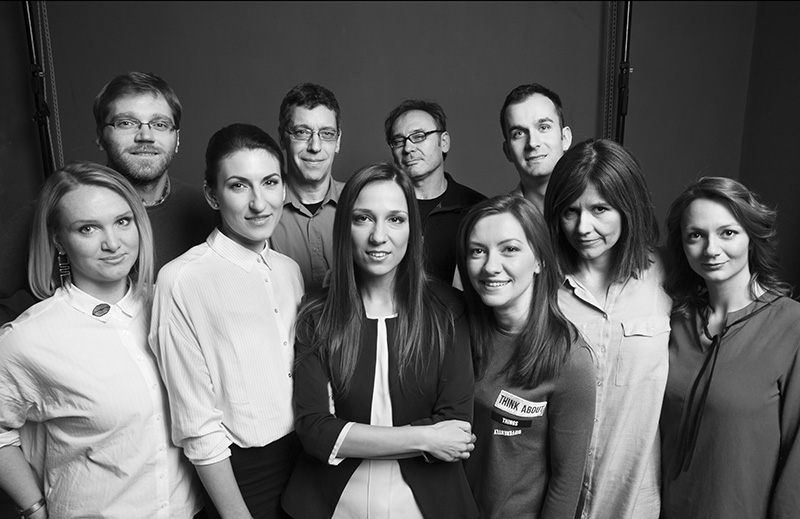
Center for Investigative Journalism of Serbia (CINS) Wins 2017 WJP Anthony Lewis Prize for Exceptional Rule of Law Journalism

The Hague, Netherlands (12 July 2017) — The Center for Investigative Journalism of Serbia (CINS) was awarded the 2017 World Justice Project (WJP) Anthony Lewis Prize for Exceptional Rule of Law Journalism at World Justice Forum V today in The Hague, Netherlands.
The Anthony Lewis Prize for Exceptional Rule of Law Journalism was created to acknowledge journalists from around the world who have contributed to increased awareness and understanding of the foundational importance of the rule of law.
The CINS team was recognized for their series of articles on systemic crime and corruption in Serbian society, with a focus on documenting how that corruption too often goes unpunished by courts and regulators. To support their reporting, the CINS team submitted more than 500 FOIA requests, creating databases based on thousands of pages of documents—often in difficult circumstances, requiring repeated petitions.
"It always feels great when you are recognized for hard work," said Dino Jahić, editor-in-chief of CINS. "But more importantly, it shows that what we did matters. Corruption is widespread on every possible level of governance, including the judiciary, while politicians are not being held accountable for their wrongdoings. We are proud that we did all this in the old fashioned—and most effective—journalistic way: by digging deep for information, relentlessly going through thousands of pages of documents, and presenting evidence for every sentence we wrote. Investigative journalism as it should be."
"Their diligent efforts remind us of the vital role independent journalism plays in upholding the rule of law," said Juan Carlos Botero, WJP executive director. "The World Justice Project congratulates CINS for their remarkable and determined journalism."
The 2017 contest drew an impressive field of journalists from around the world. As judge Martha Mendoza of the Associated Press wrote of the nominees, “I’m stunned by the courage and profound commitment of these reporters — their stories, often told in obscurity, are shining lights of justice and transparency in incredibly obscure and dangerous places.”
In addition to the prize winners, five journalists were awarded Honorable Mention in recognition of their extraordinary reporting on rule of law issues: Diego Enrique Osorno (Mexico); Daniel Balint-Kurti & Leigh Baldwin (United Kingdom); Carolyn Raphaely (South Africa); and Anuj Chopra (Afghanistan).
The WJP journalism award was named in honor of Anthony Lewis, a friend and inspiration to the World Justice Project, who was a Pulitzer Prize-winning author and journalist credited with transforming legal journalism in the United States. Lewis' reporting on the establishment of the Constitutional Court in post-apartheid South Africa helped inspire the creation of the World Justice Project. He was also an active participant at WJP's first regional meeting in 2007.
The judges for the 2017 Anthony Lewis Prize for Exceptional Rule of Law Journalism were:
- Larry Kramer, President, Hewlett Foundation
- Martha Mendoza, Reporter, Associated Press
- John Nery, Editor-in-Chief, The Inquirer
- Roberto Hernandez, Senior Researcher, World Justice Project
- Ethan Bronner, Senior Editor, Bloomberg News
About the World Justice Project
The World Justice Project® (WJP) is an independent, multidisciplinary organization working to advance the rule of law worldwide. Effective rule of law reduces corruption, combats poverty and disease, and protects people from injustices large and small. It is the foundation for communities of equity, opportunity, and peace—underpinning development, accountable government, and respect for fundamental rights. WJP’s work employs a multi-disciplinary approach through original research and data, an active and global network, and practical, locally-led programs to advance the rule of law worldwide.






